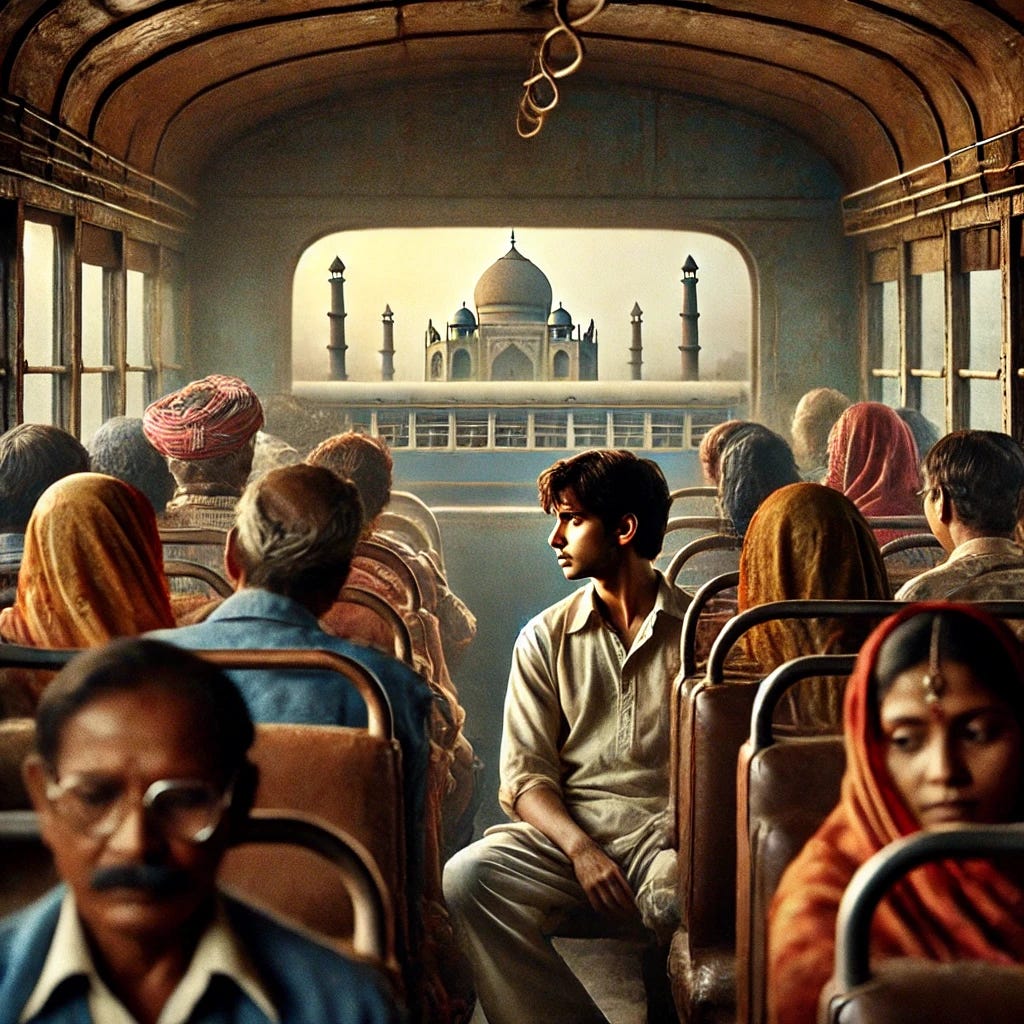One Bus Ride, Indira's Assassination and a Life That Changed Forever
How often do auto and cab drivers strike up a conversation? Almost always, right? A few months ago, I found myself in one of those conversations—and it left such an impression that I wrote this piece.
The year was 1984. On a whim that day, Radhe Shyam hopped onto the bus. Just a little over twenty, he found himself in the midst of a nation mourning the assassination of its prime minister—Indira Gandhi. The slain PM's son was about to take the oath, drawing people from all corners of the country to the capital, Delhi.
Some were moving towards Delhi to pay respect and show love; others were fascinated by the young and grieving Rajiv Gandhi with a charming personality.
Radhe Shyam, belonging to a small village in Uttar Pradesh, meanwhile, just wanted a break from the daily rigmarole. Married too young, he wanted a break from his wife. He was flabbergasted by the sudden responsibilities of married life. "Too much to handle," he chuckles and adds, "And I was getting a free ride to Delhi."
He is narrating the story to me nearly forty years later on a chilly December (2023) evening outside Vasant Vihar Metro station in Delhi—reminiscing about that fateful day that changed his life forever.
Recalling the incident, he says that buses were arranged from many villages in UP for anyone who wanted to witness this moment of the country's reckoning. He arrived in Delhi on one of the buses, packed with people. But the next day, when the bus was heading back to his village in Jaunpur in Uttar Pradesh, he chose not to board. Delhi had captured his heart.
"Everything felt so good—the people, the food, the conversations," he smiles at me. It worked in his favour that he met some kind people who offered him a glimpse into what city life felt like. "One day was enough to understand that I can do much better here than in my village."
As luck would have it, a relative working at Modern School, Barakhamba Road, promised him a job. Within days, he became a security guard at a small office running in Vasant Vihar. One thing led to another, and he switched to another company with roots in Canada. "It was all happening too fast, but I loved it," he smiles again.
When the Canadian firm he worked for wrapped up its India operations a few years later, one woman from the leadership team helped him buy an auto. "Since then, this has been life," he states with a sense of fulfilment. Over the past 40 years, he has raised six boys, sent money faithfully to his parents, and played an important role in building a decent life for folks back in his village.
In the winter of his life, he takes a moment to reflect on the changes and challenges he has witnessed.
He remembers the shift from petrol/diesel vehicles to compressed natural gas (CNG) in auto-rickshaws and the long queues for refuelling. "Oh, we had sleepless nights," he sighs.
In 2001, when the Delhi government (under Chief Minister Shiela Dixit) mandated CNG vehicles, he recalls fuel stations were completely unprepared to transition to the new fuel. There were only a few CNG pumps at select locations. He cribbed and complained about the situation with others from his community of drivers. But in the long haul, he thinks it all turned out well.
What he thinks hasn't been too favourable for the auto-driving community is the entry of services like Ola, Uber, and Rapido. "Now, everyone calls a rapido bike for a solo ride," he points to a bunch of college students outside the metro station. He hasn't subscribed to any of the app-based aggregators. He is too old school for that.
Some of his colleagues have switched to battery-operated electric vehicles in the last few months, lured by subsidies from the government. He is still driving a CNG auto and will most likely stick to it for as long as possible. The daily charging requirement for the batteries leaves him uncertain about the idea of embracing the new model that is all the rage now, especially among the younger generation of drivers. But he believes he will have to comply if the government mandates a switch like the transition was mandated in 2001. "Such is life—nothing stays the same forever," he says in a reflective tone. That's his wisdom from his life experiences.
(I have always wanted to write about people I meet in my day-to-day life. This is one of those.)






Auto drivers often share their stories with those who are good listeners—like you and me, of course.
So glad to read your writing. I am also fascinated by conversations with everyday people. Great idea